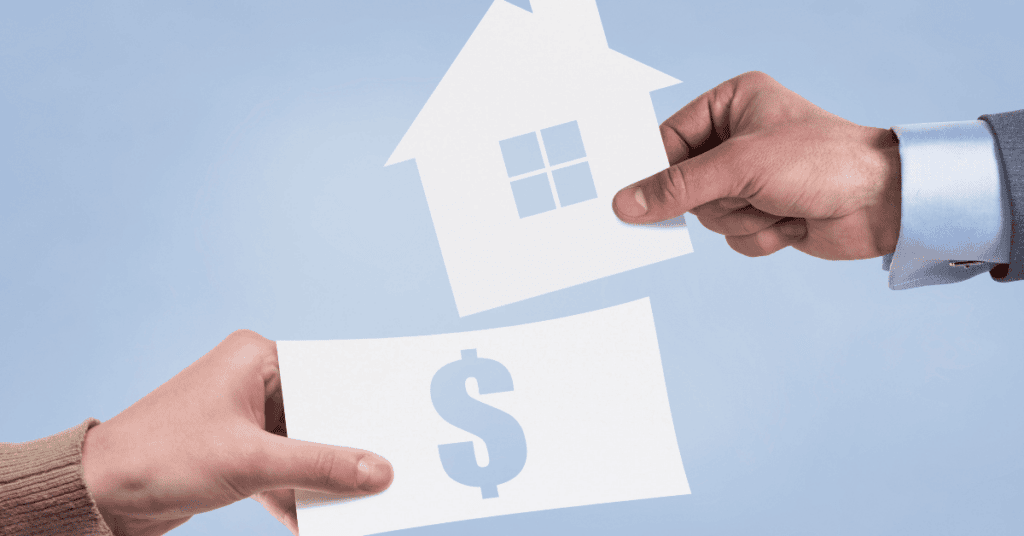Get Expert Financing
- Matched with investor-friendly lenders
- Fast pre-approvals-no W2s required
- Financing options fro rentals, BRRRR, STRs
- Scale your portfolio with confidence
Self-employed individuals and investors in Louisiana are discovering the benefits of bank statement loans, which use bank statements rather than tax documentation to prove income.
Louisiana is filled with hardworking individuals—many of whom have paved their own way within the numerous lucrative industries throughout the state.
However, self-employment, entrepreneurship, and other “alternative” pathways come with unique challenges, including getting a mortgage.
Bank statement loans in Louisiana are a flexible option with one major benefit: You may be able to qualify for a larger loan than you would otherwise.
Conventional mortgage loans rely on tax returns to prove a borrower’s adjusted gross income.
However, bank statement loan lenders understand that self-employed individuals write off their business expenses, which can make your adjusted gross income look significantly smaller.
Instead of using tax returns, bank statement loans use 12-24 months of bank statement deposits to determine your true income. Lenders use 30%-100% of the “expense ratio,” or the average deposits, depending on the type of business.
As you can see in the following table, bank statements for self-employed borrowers reveal a significantly different income amount than their tax returns alone.
| Bank Deposits | Adj. Income on Tax Returns | |
| 2021 | $150,000 | $50,000 |
| 2022 | $180,000 | $60,000 |
| Expense ratio | 50% | n/a |
| Qualification income | $6,875/mo | $4,583/mo |
| Est. max home price | $400,000 | $285,000 |
Estimated max purchase price based on 43% DTI, 20% down, $250 monthly debts, 1% property tax, $600 annual insurance, 8% rate for bank statement loan and 6.5% rate for conventional. Example purposes only.
Notice how a self-employed borrower would only qualify for a $285,000 home based on their tax returns but would qualify for a $400,000 home based on bank statements.
A bank statement loan in Louisiana can significantly open up your opportunities to buy, invest, and refinance across the state — especially as home values remain high.
Bank statement loan requirements will vary slightly by lender, but you can generally expect the following:
Numerous types of workers across industries could be the right candidate for a bank statement loan in Louisiana.
The largest industries in Louisiana include oil, natural gas, fishing, and agriculture. These industries are filled with self-employed individuals who have started their own businesses or work as independent contractors or consultants.
You may be the perfect candidate for a bank statement loan if you fall into any of the roles listed below.
| Realtors | Business owners | Real estate investors |
| Consultants | Gig workers | Independent contractors |
| Founders | Farmers | Retirees |
| Commercial fishermen | Freelancers | Contract tech workers |
| Oilfield consultants | Project managers | Repair workers |
| Self-employed doctors | Dentists | Housekeepers |
Essentially, almost anyone without a “regular job” or employer could be the right fit for this type of loan.
Because bank statement loans have simpler requirements, you could potentially close in under 30 days. Lenders are able to verify your income quickly based on your one to two years of statements.
Traditional mortgages can take a few months to close because lenders have to scrutinize a lot of documentation to meet Fannie Mae and Freddie Mac requirements. They also frequently have to request more documents to verify your information.
Take a look at the following steps involved in the bank statement loan process:
The bank statement loan process can be simpler and more flexible than traditional loans because the lender sets the requirements.
Get pre-qualified to buy a home with a bank statement loan.You can find bank statement loan anywhere throughout Louisiana, but they are particularly popular in the following cities.
| New Orleans | Baton Rouge | Lafayette |
| Shreveport | Lake Charles | Bossier City |
| Metairie | Monroe | Kenner |
If you’re an alternative-earning borrower in Louisiana seeking a source of financing for your home purchase or refinance, consider getting a bank statement loan.
Bank statement loan interest rates in Louisiana are typically around 2% higher than Fannie Mae and Freddie Mac conventional rates. This is essentially in exchange for the flexibility of this loan type.
Conventional loans offer lenders additional “protection” based on strict requirements. Low-document loans generally have higher interest rates because of the simpler requirements.
One of the biggest benefits of a bank statement loan is that borrowers generally are able to qualify for much larger loans than they would be able to with conventional loan requirements.
Finding a bank statement lender in Louisiana isn’t an issue, but it can be difficult to find a lender that matches your unique borrower needs. Gulf Coast Bank & Trust Company, Dream Home Financing, and CrossCountry Mortgage are some well-known lenders that serve Louisiana.
We can match you with the perfect lender based on a few questions about your unique borrowing scenario.
Bank statement loans aren’t for everyone. Fortunately, they also aren’t the only way to take advantage of a no-tax-return mortgage.
Take a look at the following popular alternatives to bank statement loans.
DSCR loans: Debt Service Coverage Ratio loans are the perfect match for real estate investors — and new investors in particular. Rather than determining whether you qualify based solely on your past income, DSCR loans look at your potential income from the property you want to purchase. If your monthly rental income comfortably exceeds your monthly payments, you may qualify for a DSCR loan.
Submit your DSCR loan scenario.Asset Depletion: Asset depletion loans rely on a borrower’s assets rather than their income. To qualify, the lender will determine your qualifying assets and divide the sum by a certain number of months. This figure will be used as your income. For example, $1 million in savings divided by 120 months is equal to $8,333 of income per month.
Stated Income: Stated income loans, also known as “no ratio” loans, don’t require any income to qualify. Instead, a borrower will state their income, and the lender takes them at their word. They will use other factors, such as credit score and overall financial profile, to determine the borrower’s ability to repay.
1099 Loans: 1099 loans use a borrower’s recent 1099 forms to determine income, as well as bank statements or profit and loss statements.
P&L loans: P&L loans use profit and loss statements from a CPA to verify income.
Hard money loans: Hard money loans are a short-term source of financing that provides funds fast until the borrower can secure long-term financing. One popular example is using a hard money loan to fix and flip or renovate a property, then refinance to pay back the loan.
Submit your scenario and be matched to one of the above loan products.Every loan has benefits and drawbacks based on the borrower’s unique scenario, and bank statement loans are no exception.
Pros
Cons
Lenders will want to see at least 12-24 months of your personal or business bank statements to verify your income for a bank statement loan.
In addition to one to two years of bank statements, bank statement lenders in Louisiana will evaluate the borrower’s credit and debt-to-income (DTI) ratio and will ensure they can afford the down payment amount plus cash reserves.
Bank statement lenders often will require a credit score of at least 600-660, but it’s helpful to have as high of a score as possible to access the best loan options.
Bank statement loans, like other non-QM loans, sometimes have a reputation for being more of a risk because they are not backed by the government. However, borrowers still must meet the lender’s financial requirements and have a good credit score, low debt, and proof of income via bank statements to ensure they can repay the loan.
Interest rates are generally around 2% higher for bank statement loans than conventional loans because they are not backed by the government, and lenders require less documentation to verify the borrower. In exchange for a higher rate, many borrowers are able to qualify for a much higher loan amount.
If you are looking to purchase a property or refinance your current property in Louisiana, a bank statement loan can significantly open up your options and grant you access to larger loan amounts with less documentation.
You have worked hard to earn every penny. Let your bank statements show off your true earnings so you can land the property you’ve always wanted.
Submit your Louisiana bank statement loan scenario.Our advice is based on experience in the mortgage industry and we are dedicated to helping you achieve your goal of owning a home. We may receive compensation from partner banks when you view mortgage rates listed on our website.

